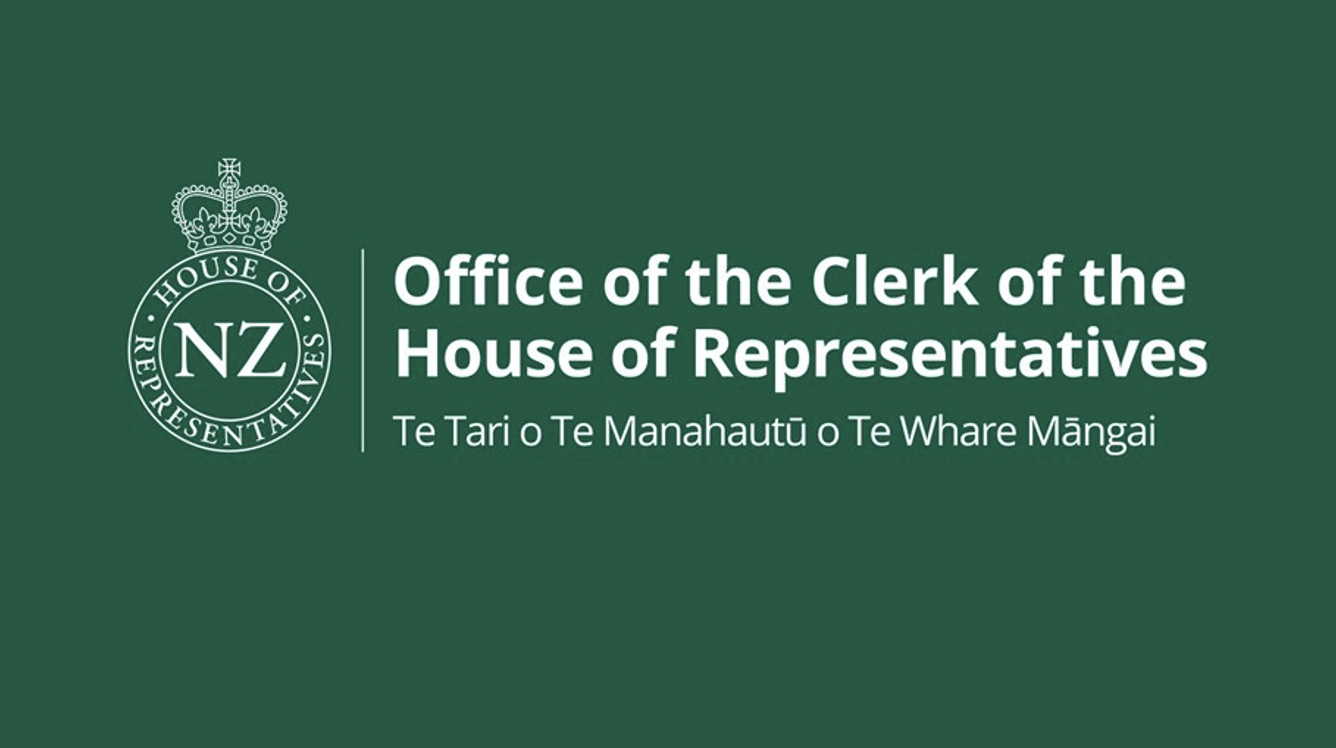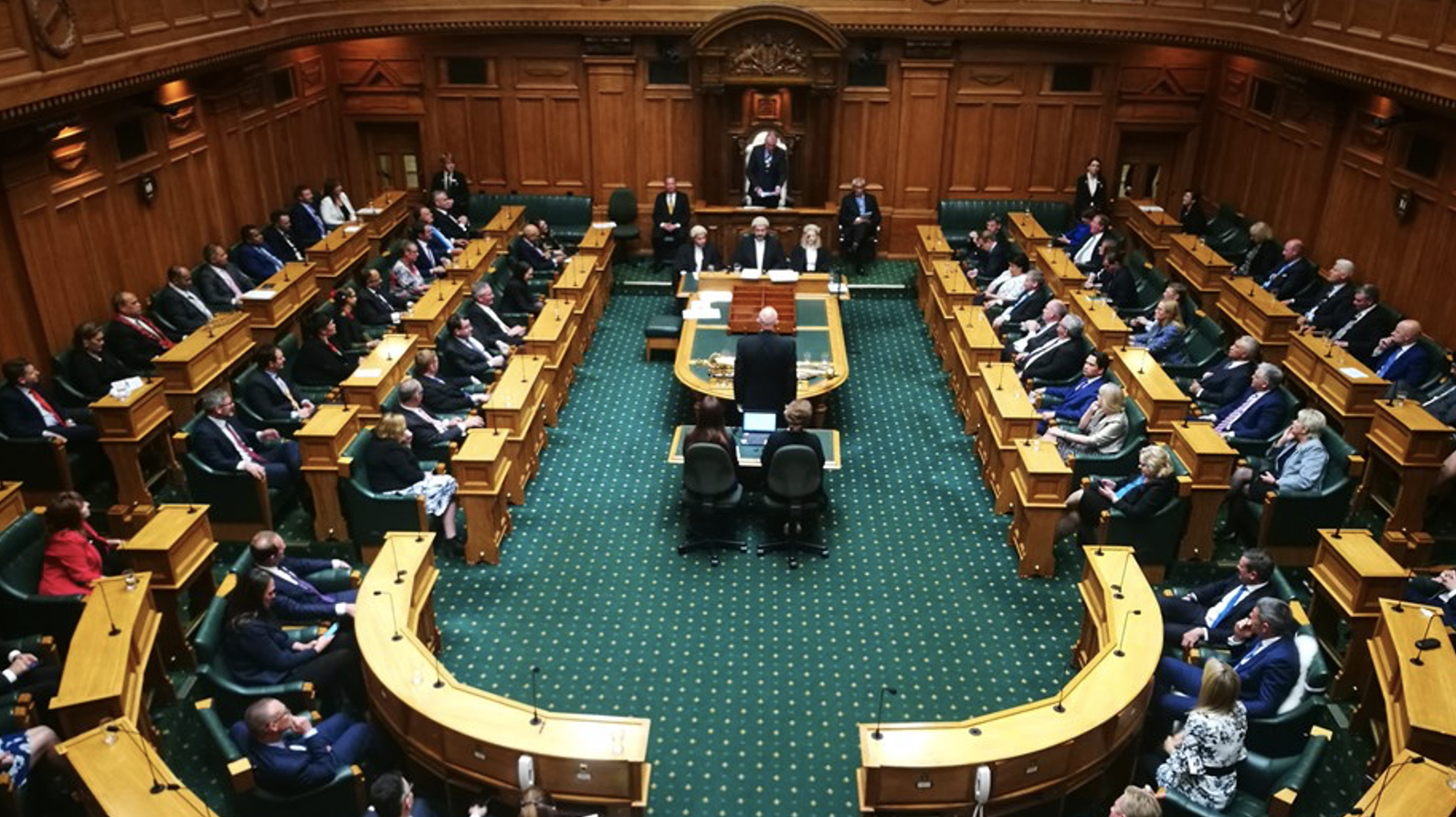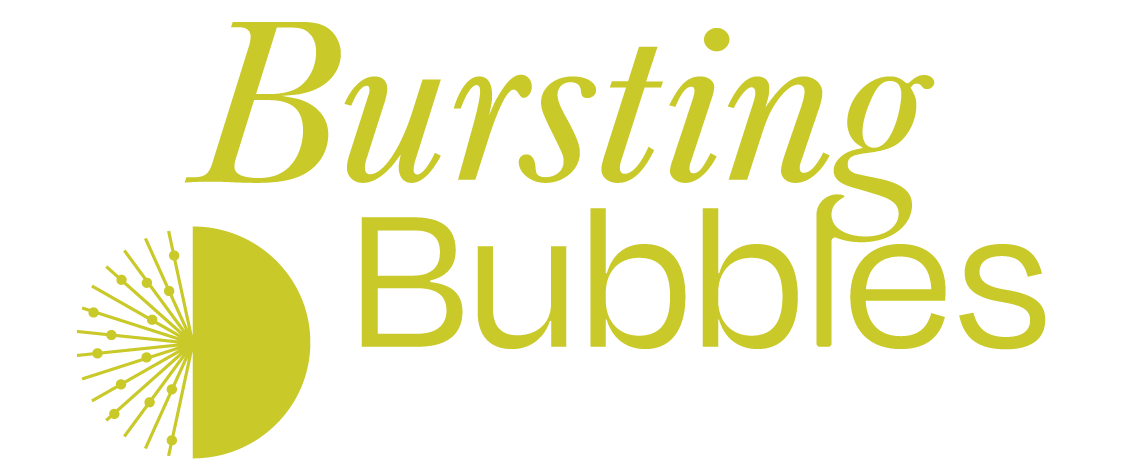Since March this year, the Institute has been running a Bursting Bubble event series on the last Thursday of each month. These ‘how to’ sessions each have a different speaker and topic, which have been curated to expand our thinking and ideas post-COVID lockdowns.
On Thursday 27 July 2023, we were fortunate to have James Picker hold a session on how to be non-partisan in a partisan world. James is respected as a non-partisan advisor who has dedicated his career to the public and strongly abides by the values of neutrality, accuracy, confidentiality and trust.
James is the Clerk Assistant in the Office of the Clerk of the House of Representatives and has responsibility for the select committees, policy, legal and Ngā Ratonga Ao Māori teams. James has been at the Office for 15 years, and over this time has maintained trust from politicians on all sides of the spectrum. James has also previously held roles as a Committee Clerk, a Table Officer and the Senior Manager for Corporate Services.

The New Zealand Parliament Buildings, seen from Parliament Lawn in Wellington. From left to right, the buildings are: Bowen House, the Beehive (the Executive Wing of the New Zealand Parliament), Parliament House and the Parliamentary Library.
Ackroyd, T. (26 June 2020). The New Zealand Parliament Buildings seen from Parliament Lawn. Retrieved 9 August 2023 from https://commons.wikimedia.org/wiki/File:NZ_Parliament_Buildings_2020-06-26.jpg
What is the role of the Office of the Clerk?
The Office plays a critical role in keeping the cogs of New Zealand’s Parliament turning; however, most New Zealanders know little, if anything, about what the Office does. James explained that the Office is relatively unknown as it is responsible for ‘all the things the public do not see’, which keep Parliament working as a legislature. The Office’s inconspicious nature is part of its behind-the-scenes role of independently supporting and advising Parliament.

Because the Office is relied upon for independent advice to Parliament, it needs to be non-partisan. The New Zealand Parliament website explains the role of the Office:
The Office of the Clerk of the House of Representatives is the legislature’s secretariat. It is an Office of State, which provides specialist advice on procedure and parliamentary law and secretariat services to the House and to its committees. It is a politically independent organisation, providing services to Parliament, as distinct from services to the Government, and providing services to members in their parliamentary roles rather than in their party or electorate capacities.
… The Office of the Clerk applies its expertise to the development and maintenance of a set of rules that are consistent, transparent, and rigorous enough to withstand constant, intense challenges, yet also able to change over time to reflect the changing nature of New Zealand society.
What does it mean to be non-partisan? What is the difference between being apolitical and non-political?
The Office must be non-partisan in order to provide consistent and accurate advice as required, which supports each MP in achieving their goals. As James said, defining what it means to be non-partisan is difficult as it is such an essential component of their work: ‘Being non-partisan is ingrained in who we are and what we do.’ To understand the role of the Office and how it achieves this, James believes it is important to understand the difference between being apolitical and non-political.
Apolitical: James described being apolitical as analogous with the public service. This means when a Minister asks a public servant a question, or asks for policy options, they will (consciously or unconsciously) respond with answers or policy options that fit with that Minister’s political views.
Non-political: James described being non-political as choosing to give the same response and advice to everyone, regardless of any political allegiance or ideas. Unlike in the public service example above, being non-political in the Office means that when asked a question by an MP, a person will consciously respond without allegiance to the any party or political views.
Non-partisan: James explained New Zealand maintains this non-partisan approach so well because of the connection between the people who work for the Office and the institution of Parliament.
James shared how his role requires all of the above and that maintaining this high standard of behaviour in an extremely political environment is inherently difficult and requires a strong values-based culture and a willingness to put aside any personal or political views.
What is a Westminster-style Parliament?
‘Understanding what a Westminster style of Parliament is, is really foundational for what we are talking about … it is right at the heart of what we do every day.’
Five key features of a Westminster-style Parliament:
- Separation of powers:
- Legislative branch (Parliament), which makes the law
- Administrative branch (Government), which administers the law and delivers government
- Judiciary (courts), which interprets the law
- Democratic elections, which mean the party that secures the support of the majority of members forms the Government
- A Government that is accountable to Parliament
- A Head of State that is separate from the head of Government (this is really important)
- An independent, non-partisan public service (this is non-political rather than apolitical, as described above).

New Zealand Parliament in a session. (2023). Retrieved 9 August 2023 from https://www.parliament.nz/en/pb/bills-and-laws/
James explained that this system separates different powers, providing checks on the system, preventing abuses of power and ensuring no single part of the government can exercise control over the others.
How do James and the Office maintain a non-partisan position in a political environment?
‘If you cannot trust what I say, if I give you cause to question why I am providing the advice I am providing, if you think the advice I am providing you has a policial bent, why would you trust me? … I am basically dead in the water as a resource.’
Maintaining public trust in our Parliament and engagement with our democratic system is important. The results of increased polarisation and distrust in the Parliamentary system were seen in 2022, when New Zealand saw protesters occupying Parliament grounds, setting fires and destroying property. According to an article by Bryce Edwards in the NZ Herald, a December 2022 poll found that 64 per cent of the New Zealand public believed our society was becoming more divided, with only 16 per cent believing the country has become more united.
If James and his colleagues at the Office were to engage in politics, the advice provided could be seen as biased and they could be perceived as having a political agenda. Essentially this would undermine the legitimacy of and trust in the political process in New Zealand. Faith in the institution of Parliament is an essential component of people engaging in politics and casting a vote in elections, which are critical parts of a functioning democratic system. James emphasised that once the credibility of the Office disappears, even if it only appears to disappear, the institution of Parliament itself will lose its value. The importance of impartiality for social cohesion is absolutely critical.
‘It isn’t just in the giving of the advice, it is in the perception of the giving of the advice.’
James shared some advice on how to be be non-partisan:
- Confidentiality and impartiality are fundamental to the role.
- Look people in the eye and work with them directly. Everyone in Parliament understands one another’s role, which means MPs know James, and understand his role and his values. He must continually uphold himself, even outside of his role as Clerk Assistant, as non-partisan.
- Be impartial not just in the advice given, but also through awareness of the perception of motivations.
- Do not engage with social or political events if there is even the slightest chance they will appear to show support of a particular politician or party. If in doubt of how an event or meeting may be perceived, say no. Attending a local constituency event may be fine for some, but not for others (for instance James personally wouldn’t attend).
- Do not engage in political activities like petitions or protests, as these may imply support.
- Maintain a ‘clerk-ly’ demeanour. This includes not laughing at jokes or comments at someone’s expense, as this may also imply support for a particular politician or party. It is best to maintain a neutral expression as much as possible. Remember it is a judgement call on how to respond.
- Keep any personal and political opinions completely private. In James’s role, it is important he views all politicians as the same and gives them consistent advice, no matter their role or party status and what his personal views may be.
James noted it is important to develop your non-partisan skills over time. He and his team recruit for character, developing a values-based culture at the Office from the ground up. People must dedicate years to developing these skills before they move to the upper levels of the organisation. James calls these people ‘proceduralists’.
Why is it so important to be non-partisan?
As the Office is relied upon for confidential advice, support and impartiality, it is extremely important James and his colleagues uphold the values of trust, reliability and consistency at all times. If these values are not upheld, or if they even appear to be compromised, the Office’s essential purpose and value to politicians and society will also be lost. Much like a doctor providing a consistent service to all patients (whether they agree with their patient’s political views or not), James and his colleagues at the Office must put any personal views aside for the public good.
In an increasingly partisan world, this is difficult and requires complete dedication. James shared a quote from a discussion in the television series The Crown which summarises this position (in relation to the Queen): ‘To do nothing is the hardest job of all. And it will take every ounce of energy that you have. To be impartial is not natural, not human. People will always want you to smile or agree or frown. And the minute you do, you will have declared a position. A point of view. And that is the one thing as sovereign that you are not entitled to do.’
As listeners at the session, we were impressed with James and his colleagues at the Office’s strong sense of public duty, to the extent that they are willing to give up things the rest of us take for granted. So much of being impartial requires strong values to stand against human nature to ‘pick a side’, or to ‘agree and be liked’. However, this sacrifice, particularly giving up political and partisan activities, is an essential part of a functioning Parliamentary system.
To illustrate the importance of maintaining impartiality, James explored the counterfactual:
- What if someone secretly slowed down legislation they didn’t agree with?
- What if someone gave different advice to people depending on their political standing?
- What if someone shared private questions with others?
- What damage would this do to the perception of Parliament as the venue through which issues, challenges and opportunities can be discussed, debated and resolved?
- If members of the public lost confidence in Parliament, what value would it have as an institution?
- What impact would that have on electoral turnout? Would people even bother if the result was controlled by Parliament’s views?
- What would be the cost to social cohesion if Parliament wasn’t a venue through which Parliament achieved what it aspires to be?
- What are the implications for wider society if we do not have confidence in the institution of Parliament?
Society takes for granted the reassurance we get from our Parliamentary institution working as it is supposed to. We participate in voting and democracy because we have faith the system works fairly.
‘At times of real national challenges (Canterbury earthquakes, Kaikōura earthquake, COVID, the death of the Queen) the importance of a Parliament is best demonstrated … It becomes an institution which we all look to … As a national symbol and a source of reassurance Parliament cannot be underestimated.’
Why is impartiality and non-partisanship an important mechanism for people to take away?
For James, it comes back to trust.
‘I will be impartial, I will be non-partisan, I will give you all the same advice … On that basis what I say can be relied upon. In 2023, how many places do you know where that is true? Completely true, in everything I tell you … Whether in public service or private business, that means people will come back over and over … That is right at the core of what we do, because that is what we are for. And that is why for me, at the core, impartiality and non-partisanship are really, really important.’
Q & A
The event finished with a Q & A session with the audience.
Would you say it is helpful to be aware of your ingrained political leanings in order to mitigate the impact they may have, as opposed to trying to push them out of mind and being truly impartial?
James responded no, because he describes himself as a ‘swing voter’. This means he does not have a deep personal ingrained political leaning and thinks this has been an element of being able to remain non-partisan and undertake his job so successfully.
James noted in response to this, someone may say being a ‘swing voter’ is a political persuasian in itself, in which case the answer to the question is yes. Perhaps not having an ingrained political persuasion makes it easier in some ways; however, with over 700 people working in the Parliamentary Service there are plenty of people working there who sit on all sides of the political spectrum.
Colin James [New Zealand political commentator and journalist] said he ‘won’t vote’, whereas Wendy [McGuinness] believes at the Institute they take a strong view people should participate in democracy and vote. What is James’s opinion on this?
James said he does vote. He takes it as the one thing he can do, and always makes sure to vote.
James believes it is important to show children voting is important, which is part of civics education and why it is so essential for society. However, it is important to note in his role he is required to keep who he has voted for private, in case this is perceived to have an impact on his non-partisan advice.
(Refer to the note on voting in New Zealand’s upcoming 2023 elections below.)
Wendy shared her experiences with being perceived as having a political slant (on both sides) even though the Institute is a non-partisan organisation. Has James had this experience as being positioned in a certain way?
To a great degree, James feels he and his team do the same thing as the Institute by sharing the same information/advice with people on all sides of the political spectrum.
However, it is important to be aware of how your behaviour may appear to others. For instance, retiring MPs invite James and his team to leaving functions but he respectfully declines as going may imply support. In a non-partisan role, people must be very careful not to be seen going out to dinner, drinks, or other events with an individual MP or people from a single party. To do so would remove the perception of impartiality, which is an extremely important part of doing the job.
Public service, implied throughout everything said, is the concept of service to the public by a group of officials. In an increasingly partisan world, how do you imbue that philosophy generally as people join [the Office]? How do you maintain the view people are working for the public rather than people working for a particular Minister or party?
James believes standing by a non-partisan philosophy is easier for him and the Office as they are part of an organisation which is naturally not part of politics. For instance, David Wilson, the current Clerk of the House of Representatives, is an independent statutory officer. He is appointed by warrant by the Governor-General upon recommendation by the Speaker.
In practice, this means the Office is very different to other public service organisations such as MBIE, MfE, etc. James believes this makes it easier for him to maintain a true non-partisan approach: ‘My position is really really simple, as compared to theirs.’
The values-based culture is essential and James and his collegues believe maintaining a commitment to political neutrality is of benefit to the public. Being non-partisan means they can fairly and impartially serve the public, working to ensure democratically elected officials fulfil their objectives in a timely and efficient manner (as they were elected to do).
James noted public service is ‘a calling, not for everybody … you are not going to become a millionaire’. However working for the public is ‘a way to make a direct contribution to the country you live in … It is a really important function…’
Our feedback from this session has been extremely positive and we are grateful to James for sharing his knowledge in such an enjoyable, educational and entertaining session. It is highly recommended you view the full session on the McGuinness Institute YouTube, which is available here.
A note on your opportunity to vote in the upcoming elections
It is important to note as New Zealand’s 2023 elections come up later this year, that being non-partisan does not mean James (or the Institute) believe people should not engage in politics. In fact, it is the opposite: democracy requires us to all get engaged and vote!
Voting is powerful. It is an opportunity to vote for the New Zealand you would like to see.
Enrol to vote and find more information on the 2023 general election on the Electoral Commission website (vote.nz).

The next Bursting Bubbles event
We are looking forward to the next Bursting Bubbles event: How to sharpen your political nous in government, with Sally Washington.
Sally heads the Australia and New Zealand School of Government (ANZSOG) operations in Aotearoa New Zealand. She set up the New Zealand Policy Project, based in the New Zealand Department of the Prime Minister and Cabinet. She also worked for seven years at the OECD, where she managed a network of Heads of Prime Ministers’/Presidents’ Offices from OECD countries.
This next session will be from 5 to 6 pm on Thursday 31 August, followed by light refreshments. Register to join us in person at our Wellington office or over Zoom.

